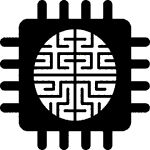Electrical and Computer Engineering, Department of

Department of Electrical and Computer Engineering: Faculty Publications
ORCID IDs
Document Type
Article
Date of this Version
2014
Citation
Vol. 30 no. 6 2014, pages 860–867
Abstract
Motivation: Reverse engineering GI networks from experimental data is a challenging task due to the complex nature of the networks and the noise inherent in the data. One way to overcome these hurdles would be incorporating the vast amounts of external biological knowledge when building interaction networks. We propose a framework where GI networks are learned from experimental data using Bayesian networks (BNs) and the incorporation of external knowledge is also done via a BN that we call Bayesian Network Prior (BNP). BNP depicts the relation between various evidence types that contribute to the event ‘gene interaction’ and is used to calculate the probability of a candidate graph (G) in the structure learning process.
Results: Our simulation results on synthetic, simulated and real biological data show that the proposed approach can identify the underlying interaction network with high accuracy even when the prior information is distorted and outperforms existing methods.


Comments
Copyright The Author 2013.
Open access
doi:10.1093/bioinformatics/btt643